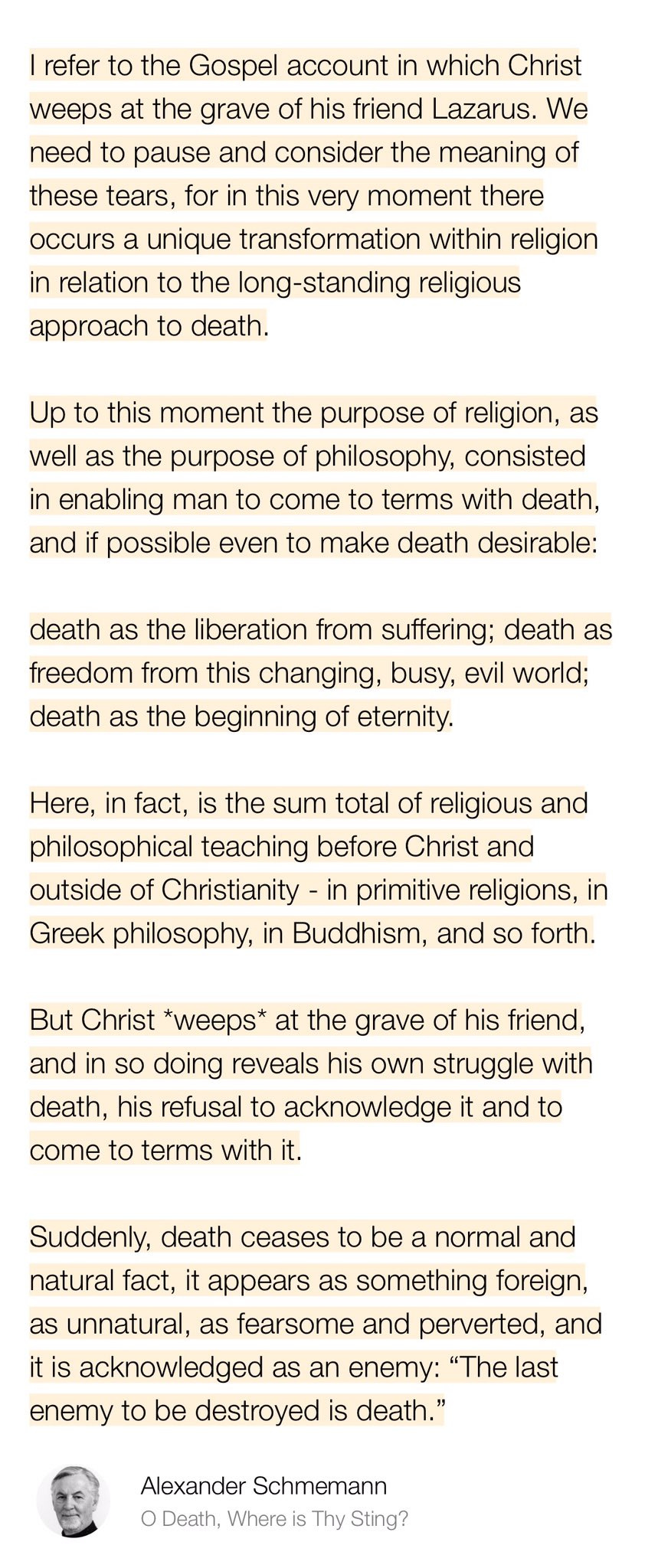Death is the last enemy
How we rationalize death
Peter Thiel once said something along the lines of, “Nobody is against anti-aging research, because in practice what you’re solving for are problems everybody wants cures for” (like Alzheimer’s, back pain, cancer, baldness, Parkinson’s, etc).
I think about that idea often, not least because aging is such an intractably hard problem, we’ve sort of collectively rationalized it as “good thing”. You see it in the many religious traditions. In the zeitgeist. In our history. That somehow death gives life meaning. Makes it good.
But I’ve never found anybody who thinks cancer is a good thing. Nobody sane at least.
I’ve thought about it for a while now and realized that in some sense many philosophy problems are just health problems waiting to be solved. There’s no trolley problem if you can just bring people back to life.
Occasionally I think about the Bible too and the way Christ (regardless of your religious beliefs) upended this tradition of rationalizing death as good. It happened quickly too; in the shortest verse in the English Bible as noted by the great priest Alexander Schmemann1:
“Jesus wept.”
And he was weeping for Lazarus, a man who died (someone he could bring back to life), someone dear to him; in some sense a true condemnation of death as evil. Something even a god would weep over.
And it makes me think about the future too; the way immortality will finally be achieved. When it’ll be achieved. There’s so many obstacles when it comes to aging, and so much we don’t know about the human body, I wonder whether humans will be involved at all; whether machines will silently develop cures while our bodies lie metal tombs, explaining to us what happened afterwards in terms we can understand.
I think it’ll happen someday. But I don’t know if it’ll be a year or 100 years from now.
I hope it’s soon. Some days I feel like I’m at the edge of an eternal history.



Good to see you write again :)